Go Lean Commentary
White America had it all wrong!
Racism was not a privilege, it cost them more than they had bargained for. In fact, pursuing a racist agenda deprived them of privileges that they were entitled to.
Imagine, denying yourself of a swimming pool on a hot day because by opening the pool, Black people would get to swim too.
This was bad … and yet, if lessons are not learned that same expensive consequence will be repeated again and again.
 This is the lessons we glean from the new book by Heather McGhee, that the Zero Sum experience is expensive when Non-Zero Sum is so much cheaper, easier and … just.
This is the lessons we glean from the new book by Heather McGhee, that the Zero Sum experience is expensive when Non-Zero Sum is so much cheaper, easier and … just.
The movement behind the 2013 book Go Lean … Caribbean proclaims that people in the Caribbean – mostly Black and Brown – can benefit by consuming Heather McGhee’s book and the resultant lessons. The actual title-subtitle is as follows:
“The Sum of Us”: What Racism Costs Everyone and How We Can Prosper Together.
The book is about America, but we can apply these lessons in the Caribbean too.
See the full Book Review here:
Book Title: The Sum of Us: What Racism Costs Everyone and How We Can Prosper Together – By: Heather McGhee
Review by: Jennifer Szalai
Hinton Rowan Helper was an unreserved bigot from North Carolina who wrote hateful, racist tracts during Reconstruction. He was also, in the years leading up to the Civil War, a determined abolitionist.
His 1857 book, “The Impending Crisis of the South,” argued that chattel slavery had deformed the Southern economy and impoverished the region. Members of the plantation class refused to invest in education, in enterprise, in the community at large, because they didn’t have to. Helper’s concern wasn’t the enslaved Black people brutalized by what he called the “lords of the lash”; he was worried about the white laborers in the South, relegated by the slave economy and its ruling oligarchs to a “cesspool of ignorance and degradation.”
Helper and his argument come up early on in Heather McGhee’s illuminating and hopeful new book, “The Sum of Us” — though McGhee, a descendant of enslaved people, is very much concerned with the situation of Black Americans, making clear that the primary victims of racism are the people of color who are subjected to it. But “The Sum of Us” is predicated on the idea that little will change until white people realize what racism has cost them too.
The material legacy of slavery can be felt to this day, McGhee says, in depressed wages and scarce access to health care in the former Confederacy. But it’s a blight that’s no longer relegated to the region. “To a large degree,” she writes, “the story of the hollowing out of the American working class is a story of the Southern economy, with its deep legacy of exploitative labor and divide-and-conquer tactics, going national.”
As the pandemic has laid bare, the United States is a rich country that also happens to be one of the stingiest when it comes to the welfare of its own people. McGhee, who spent years working on economic policy for Demos, a liberal think tank, says it was the election of Donald Trump in 2016 by a majority of white voters that made her realize how most white voters weren’t “operating in their own rational economic self-interest.” Despite Trump’s populist noises, she writes, his agenda “promised to wreak economic, social and environmental havoc on them along with everyone else.”
At several points in McGhee’s book, I was reminded of the old saw about “cutting off one’s nose to spite one’s face,” though she prefers a less gruesome metaphor — the drained swimming pool. Grand public pools were sumptuous emblems of common leisure in the early decades of the 20th century, steadfastly supported by white Americans until they were told to integrate them. McGhee visited the site of one such pool in Montgomery, Ala., drained and cemented over since 1959 so that nobody, white or Black, could ever enjoy it again.
It’s a self-defeating form of exclusion, a determination not to share resources even if the ultimate result is that everyone suffers. McGhee writes about health care, voting rights and the environment; she persuasively argues that white Americans have been steeped in the notion of “zero sum” — that any gains by another group must come at white people’s expense. She talks to scholars who have found that white respondents believed that anti-white bias was more prevalent than anti-Black bias, even though by any factual measure this isn’t true. This cramped mentality is another legacy of slavery, McGhee says, which really was zero sum — extractive and exploitative, like the settler colonialism that enabled it. She writes that zero-sum thinking “has always optimally benefited only the few while limiting the potential of the rest of us, and therefore the whole.”
Recent books like Jonathan Metzl’s “Dying of Whiteness” have explained how racial animus ends up harming those who cling to a chimera of privilege. While reading McGhee I was also reminded of Thomas Frank’s argument in “What’s the Matter With Kansas?” (2004), about how the Republican Party had figured out a way to push through an unpopular economic agenda by stowing it inside a Trojan horse of social conservatism and cultural grievance.
But there are major differences between their books. Frank derides the idea that racism has anything to do with what he’s writing about. Not to mention that McGhee isn’t a stinging polemicist; she cajoles instead of ridicules. She appeals to concrete self-interest in order to show how our fortunes are tied up with the fortunes of others. “We suffer because our society was raised deficient in social solidarity,” she writes, explaining that this idea is “true to my optimistic nature.” She is compassionate but also cleareyed, refusing to downplay the horrors of racism, even if her own book suggests that the white readers she’s trying to reach can be easily triggered into seeking the safe space of white identity politics. Color blindness, she says, is just another form of denial.
One of the phenomena that emerges from McGhee’s account is that the zero-sum mentality tends to get questioned only in times of actual scarcity — when people are so desperate that they realize how much they need one another. She gives the example of the Fight for $15 movement: Already earning poverty-level wages, fast-food workers began to ask what they had to lose by organizing.
Against “zero-sum” she proposes “win-win” — without fully addressing how the ideal of win-win has been deployed for cynical ends. McGhee discusses how the subprime mortgage crisis was fueled by racism, but it was also inflated by promises of a constantly expanding housing market and rising prices. Once the credit dried up, win-win reverted to zero-sum, with the drowned (underwater homeowners) losing out to the saved (well-connected bankers).
“We live under the same sky,” McGhee writes. There is a striking clarity to this book; there is also a depth of kindness in it that all but the most churlish readers will find moving. She explains in exacting detail how racism causes white people to suffer. Still, I couldn’t help thinking back to the abolitionist Helper, who knew full well how slavery caused white people to suffer, but remained an unrepentant racist to the end.
Follow Jennifer Szalai on Twitter: @jenszalai.
Source: New York Times – posted February 23, 2021; retrieved February 25, 2021 from: https://www.nytimes.com/2021/02/23/books/review-sum-of-us-heather-mcghee.html
America has some reconciliations to do.
Their Good Old Days weren’t all so good …
Racism is embedded in the country’s DNA …
Institutional Racism is institutional … and weaved into many facets of the American eco-system …
For the Caribbean, the urging is to be On Guard while emulating and role-modeling America as the regional hegemony. Their preponderance for “Us versus Them” continues to proliferate.
- HBCU’s – Historically Black Colleges & Universities – continue to strive among the African-American population for tertiary education.
- Housing Discrimination continues unabated; Urban for Blacks; suburban for Whites; in fact, the term “Urban” is even now considered the new slang for “Black”; i.e. Urban Contemporary Music is Hip-Hop for Black people.
This problem in America – racism as a factor in “Us vs Them” – continues as a defective Community Ethos – the underlying sentiment that informs the beliefs, customs, or practices of society. Despite the passage of time, the bad Community Ethos persists. This is why, for the Caribbean to learn from the American experience, we must start with reforming and transforming Community Ethos before the consideration for any strategy, tactic or implementation in the economic, security or governing engines in Caribbean society.
“Us vs Them” …
… is the continuation of the February 2021 Teaching Series for the movement behind the 2013 book Go Lean…Caribbean. (Every month, we present a series relevant to Caribbean life, culture and economics). For this month, we are looking at the subject of Zero Sum Thinking and lamenting how “Us vs Them” thinking permeates so much of the Caribbean mindset. It is NOT true for us to win, someone else must lose. Not rather, it is possible for “Win-Win”. This is Non-Zero Sum cooperation, collaboration, collusion, collectivity and community. This is the fifth entry, 5-of-6, on this Teaching Series. Consider, how this seamlessly fits in with the full catalog for this month:
- Zero Sum: Lesson 101 – No more “Gold Standard”
- Zero Sum: Realities of Globalism – “Non-Zero Sum” for the whole world
- Zero Sum: ICT as a tool, the “Great Equalizer”
- Zero Sum: Regional Tourism should not be a competition – Encore
- Zero Sum: Book Review – Racism is a factor; “Us vs Them”
- Zero Sum: How to fix “Inequality” – Raise the tide, all boats are elevated
We started this series on Zero Sum by looking at economic principles, establishing that since we are no longer on a “Gold Standard”, any view of “haves versus have-nots” should no longer be an issue. We, the full 30 Caribbean member-states, can now all win, gain and grow. There should be no “Us vs Them” strategizing. This is a great lesson we can learn from this American experience; (do not be misled, the blatant racial segregation in the Jim Crow South was also practiced in other New World countries, including many Caribbean destinations; in fact, Colorism persists even in this day).
The book Go Lean … Caribbean posits that America’s history (and present) has been plagued with institutional racism (and another defect Crony-Capitalism). This should not the role model for the Caribbean to emulate. Rather, the book advocates for a Non-Zero Sum climate, with no “Us vs Them” racially. No, the roadmap calls for reforming and transforming Caribbean society to be the just, equitable homeland that we all seek. The book stressed that to accomplish this goal, there are some key community ethos that the community must adapt, and then also some strategies, tactics, implementations and advocacies that must be executed.
Yes, we can …
In addition to the Go Lean book, this commentary has addressed this subject matter – reforming racial inequities – on many occasions. Consider this sample of previous blog-commentaries:
| https://goleancaribbean.com/blog/?p=18963 | Happy Chinese New Year – Honoring Sino people worldwide |
| https://goleancaribbean.com/blog/?p=20203 | Black Image – Pluralism is the Goal |
| https://goleancaribbean.com/blog/?p=18749 | Good Example of Diversity and a ‘Great Place to Work’: Mercedes-Benz |
| https://goleancaribbean.com/blog/?p=16102 | Celebrating Diwali – A Glimpse of our Pluralistic Democracy |
| https://goleancaribbean.com/blog/?p=14558 | A Role Model of Being the Change in Civil Rights – Linda Brown, RIP |
| https://goleancaribbean.com/blog/?p=14413 | Repairing the Breach: ‘Hurt People Hurt People’ – Lynching History |
| https://goleancaribbean.com/blog/?p=7204 | ‘The Covenant with Black America’ – Ten Years Later |
| https://goleancaribbean.com/blog/?p=5733 | Better than America? Yes, We Can! |
| https://goleancaribbean.com/blog/?p=5527 | American Defects: Racism – Is It Over? |
| https://goleancaribbean.com/blog/?p=1909 | Using Music to Change Americas Race Relations – Berry Gordy |
Heather McGhee is the American Author that penned this book, The Sum of Us, on the economic impact of racism in America. She did not only journalized the problems, she strategized solutions as well; see this depicted in an interview in the VIDEO here:
VIDEO – Heather McGhee – “The Sum of Us” & The True Cost of Racism | The Daily Social Distancing Show – https://youtu.be/IZpse-90KTY
The Daily Show with Trevor Noah
Published on Feb 18, 2021 – Heather McGhee talks about examining the economic impact of racism in America in her new book “The Sum of Us,” and underlines the importance of having honest conversations about past and present racism at a community level. #DailyShow #TrevorNoah #HeatherMcGheeSubscribe to The Daily Show: https://www.youtube.com/channel/UCwWh…
Follow The Daily Show: Twitter: https://twitter.com/TheDailyShow
Facebook: https://www.facebook.com/thedailyshow
Instagram: https://www.instagram.com/thedailyshowWatch full episodes of The Daily Show for free: http://www.cc.com/shows/the-daily-sho…
Follow Comedy Central: Twitter: https://twitter.com/ComedyCentral
Facebook: https://www.facebook.com/ComedyCentral
Instagram: https://www.instagram.com/comedycentralAbout The Daily Show: Trevor Noah and The Daily Show correspondents tackle the biggest stories in news, politics and pop culture. The Daily Show with Trevor Noah airs weeknights at 11/10c on Comedy Central.
Per Heather McGhee, the First Step in resolving society’s woes: Stop being racist; stop pitting “Us vs Them”; stop being Zero-Sum; try including everyone in the community in elevating the economic, social and governing engines.
Again, yes, we can … . While the American South languished during the Bad Old Days, other communities thrived, as they did better with universal community building. The South had a lot of work to do.
Consider this example from Sports: In 1947, the Owner of the Major League Baseball Team “The Brooklyn Dodgers”, Branch Rickey, was the first to hire a Black Man – Jackie Robinson – on a baseball team. What was his motivation? To win baseball games … and championships. He was successful with this goal with a World Series Championship in 1955 … and then some:
Jackie Robinson was named National League Rookie of the Year [in 1947, the year he broke the racial barrier]. In 1949 he was the league’s Most Valuable Player. Robinson led the Brooklyn Dodgers to six league championships and one World Series victory. He was inducted into the Baseball Hall of Fame in 1962. – https://www.britannica.com/biography/Jackie-Robinson
White-Only teams henceforth sacrificed the ability to win by discriminating against minorities. Today, Major League Baseball (MLB) is dominated by the best athletes in the world; the only thing that matters is talent, with little regards to ethnicity; (now Whites are the minority).
The Caribbean also, has some work to do. We must look for “Win-Win” with people who may be different.
The Go Lean book serves as a roadmap for effecting change in the Caribbean; it introduces the technocratic Caribbean Union Trade Federation (CU) as a vehicle to bring about desired change in the region’s economics, security and governing engines. We want to be a pluralistic democracy with opportunity, equal rights and justice for all. All persons in the Caribbean are hereby urged to lean-in for this Go Lean roadmap.
Now’s the time for these empowerments in the Caribbean! It is time to build our better society. The strategies, tactics and implementations proposed in the book Go Lean…Caribbean are conceivable, believable and achievable. Yes, we can … do this; we can make our homeland a better place to live, work and play. 🙂
About the Book
The book Go Lean…Caribbean serves as a roadmap for the introduction and implementation of the technocratic Caribbean Union Trade Federation (CU), for the elevation of Caribbean society – for all member-states. This CU/Go Lean roadmap has these 3 prime directives:
- Optimization of the economic engines in order to grow the regional economy to $800 Billion & create 2.2 million new jobs.
- Establishment of a security apparatus to ensure public safety and protect the resultant economic engines.
- Improve Caribbean governance to support these engines, including a separation-of-powers between the member-states and CU federal agencies.
The Go Lean book provides 370-pages of turn-by-turn instructions on “how” to adopt new community ethos, plus the strategies, tactics, implementations and advocacies to execute so as to reboot, reform and transform the societal engines of Caribbean society.
Download the free e-Book of Go Lean … Caribbean – now!
Who We Are
The movement behind the Go Lean book – a non-partisan, apolitical, religiously-neutral Community Development Foundation chartered for the purpose of empowering and re-booting economic engines – stresses that reforming and transforming the Caribbean societal engines must be a regional pursuit. This was an early motivation for the roadmap, as pronounced in the opening Declaration of Interdependence (Pages 12 – 13):
xi. Whereas all men are entitled to the benefits of good governance in a free society, “new guards” must be enacted to dissuade the emergence of incompetence, corruption, nepotism and cronyism at the peril of the people’s best interest. The Federation must guarantee the executions of a social contract between government and the governed.
xvi. Whereas security of our homeland is inextricably linked to prosperity of the homeland, the economic and security interest of the region needs to be aligned under the same governance. Since economic crimes … can imperil the functioning of the wheels of commerce for all the citizenry, the accedence of this Federation must equip the security apparatus with the tools and techniques for predictive and proactive interdictions.
xxiv. Whereas a free market economy can be induced and spurred for continuous progress, the Federation must install the controls to better manage aspects of the economy: jobs, inflation, savings rate, investments and other economic principles. Thereby attracting direct foreign investment because of the stability and vibrancy of our economy.
Sign the petition to lean-in for this roadmap for the Caribbean Union Trade Federation.


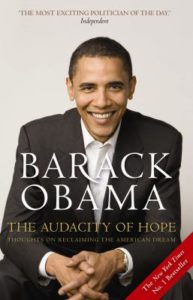 Title: The Audacity of Hope : Thoughts on Reclaiming the American Dream (2006)
Title: The Audacity of Hope : Thoughts on Reclaiming the American Dream (2006)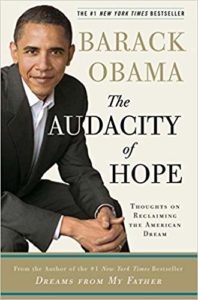


 Tiger parenting is strict or demanding parenting. Tiger parents push and pressure their children to attaining high levels of
Tiger parenting is strict or demanding parenting. Tiger parents push and pressure their children to attaining high levels of  All decent parents want to do what’s best for their children. What Battle Hymn of the Tiger Mother reveals is that the Chinese just have a totally different idea of how to do that. Western parents try to respect their children’s individuality, encouraging them to pursue their true passions and providing a nurturing environment. The Chinese believe that the best way to protect your children is by preparing them for the future and arming them with skills, strong work habits, and inner confidence. Battle Hymn of the Tiger Mother chronicles Chua’s iron-willed decision to raise her daughters, Sophia and Lulu, her way—the Chinese way—and the remarkable results her choice inspires.
All decent parents want to do what’s best for their children. What Battle Hymn of the Tiger Mother reveals is that the Chinese just have a totally different idea of how to do that. Western parents try to respect their children’s individuality, encouraging them to pursue their true passions and providing a nurturing environment. The Chinese believe that the best way to protect your children is by preparing them for the future and arming them with skills, strong work habits, and inner confidence. Battle Hymn of the Tiger Mother chronicles Chua’s iron-willed decision to raise her daughters, Sophia and Lulu, her way—the Chinese way—and the remarkable results her choice inspires. “Battle Hymn of the Tiger Mother hit the parenting hot button, but also a lot more, including people’s complicated feelings about ambition, intellectualism, high culture, the Ivy League, strong women and America’s standing in a world where China is ascendant. Chua’s conviction that hard work leads to inner confidence is a resonant one.”—Chicago Tribune
“Battle Hymn of the Tiger Mother hit the parenting hot button, but also a lot more, including people’s complicated feelings about ambition, intellectualism, high culture, the Ivy League, strong women and America’s standing in a world where China is ascendant. Chua’s conviction that hard work leads to inner confidence is a resonant one.”—Chicago Tribune These are just a few of the fascinating questions posed and discussed in Beyond the Tiger Mom, a captivating new book by educator, author, and mother, Maya Thiagarajan. In this research-backed guide, she examines each of the “tiger mother” stereotypes and goes beneath the surface to discover what happens in Asian parenting households. How do Asian parents think about childhood, family, and education and what can Western parents learn from them? And what benefits does a traditional Western upbringing have that Asian parents, too, may want to consider?
These are just a few of the fascinating questions posed and discussed in Beyond the Tiger Mom, a captivating new book by educator, author, and mother, Maya Thiagarajan. In this research-backed guide, she examines each of the “tiger mother” stereotypes and goes beneath the surface to discover what happens in Asian parenting households. How do Asian parents think about childhood, family, and education and what can Western parents learn from them? And what benefits does a traditional Western upbringing have that Asian parents, too, may want to consider? If this is the truth for the “greatest of the greats”, how much more so for the “lesser of the Less Than‘s”?
If this is the truth for the “greatest of the greats”, how much more so for the “lesser of the Less Than‘s”?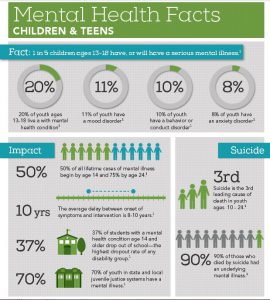
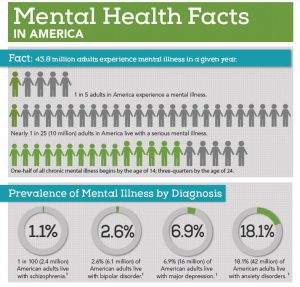
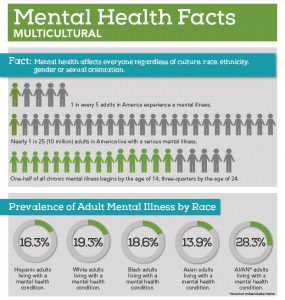
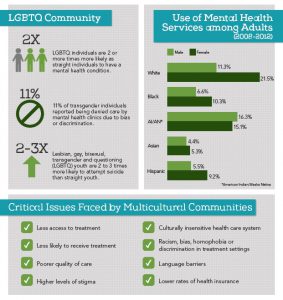
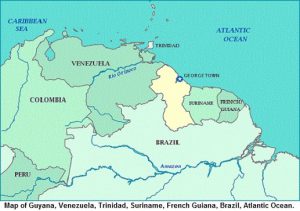
 This is a familiar advocacy from the movement behind the book Go Lean…Caribbean – available to
This is a familiar advocacy from the movement behind the book Go Lean…Caribbean – available to 

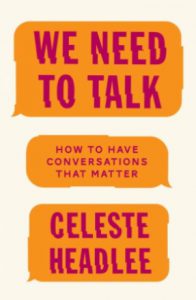 In this urgent and insightful book, public radio journalist Celeste Headlee shows us how to bridge what divides us–by having real conversations. (BASED ON THE TED TALK WITH OVER 10 MILLION VIEWS)
In this urgent and insightful book, public radio journalist Celeste Headlee shows us how to bridge what divides us–by having real conversations. (BASED ON THE TED TALK WITH OVER 10 MILLION VIEWS) Biography
Biography













